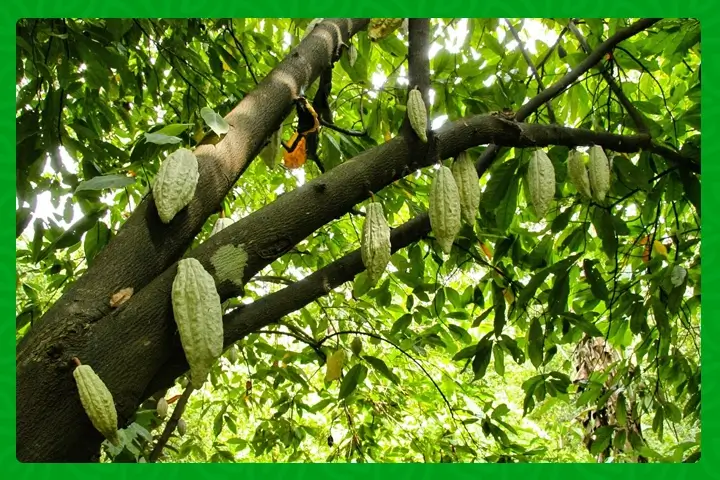
When a farmer waits on a bag of fertiliser the whole season can change. That is the simple reality COCOBOD is leaning into with its renewed pledge to guarantee a steady and timely supply of fertilisers to cocoa growers across Ghana. The board says consistent access to fertiliser and other essential inputs is not a luxury. It is the foundation of higher yields, stronger incomes and a more resilient cocoa sector.
COCOBOD’s Head of Public Affairs, Jerome K. Sam, speaking for Chief Executive Officer Dr. Randy Abbey, stressed that the board is listening to farmers and acting on their concerns. He said COCOBOD has recorded the issues shared by growers and is working with government and partners to make sure those concerns translate into action on the ground. That is the kind of follow through farmers have been asking for.
The timing of the pledge matters. Government recently raised the fixed farmgate price to 58,000 cedis per metric ton, or 3,625 cedis per 64 kilogram bag, in a move designed to improve farm incomes and reduce incentives for smuggling to neighbouring markets. That increase adds muscle to the fertiliser promise because higher guaranteed prices make it more viable for farmers to invest in inputs and for COCOBOD to prioritise timely distribution.
Concrete targets are now on the table. Ghana is aiming for output of 650,000 metric tons for the 2025/26 season, up from 600,000 tons the previous year. Hitting that goal will not happen by price adjustments alone. It will need better field-level practices, reliable inputs and closer cooperation between state agencies and farm communities. Fertiliser is a low hanging fruit with a high payoff when applied correctly at the right time.
What this pledge looks like in practice matters to ordinary households. Timely supply means fertiliser arrives when cocoa trees need it most, not after peak demand has passed. That raises yields per hectare and can translate rapidly into higher cash flows for families. For many cocoa communities, the seasonality of income makes every injection of productivity feel like a lifeline. COCOBOD’s assurance is an attempt to turn that lifeline into a steady rope.
COCOBOD and government have been working on coordinated measures to support the sector beyond fertiliser. The recent producer price review and public commitments from leadership are signals that the state wants a healthier value chain, one where farmers see consistent returns and where losses from smuggling and middleman distortions are reduced. The challenge now is implementation at scale and maintaining transparency so farmers actually receive the promised inputs and the revised price.
Farmers and field officers will be watching for several practical signs that the pledge is real. They want clear delivery schedules, visible records of distribution, and channels to report shortfalls quickly. When a fertiliser program is paired with training on application and soil fertility management, the results multiply. Simple, accountable logistics combined with farmer education can convert sacks of fertiliser into measurable yield gains.
There are risks to manage. Supply chain disruptions, currency volatility and seasonal logistics can all frustrate even the best plans. That is why COCOBOD’s framing of the promise as a collaborative effort with stakeholders is important. Governments, private suppliers, farmer groups and extension services need to align incentives so that fertiliser procurement, storage and distribution do not become bottlenecks. When everyone moves in step the whole chain benefits.
What farmers should do now is straightforward. Keep records of what you receive, note delivery dates, and report any shortfalls to your local COCOBOD office or extension agent. Use the current window to plan fertilizer application around weather forecasts and farm by farm needs. And because the new farmgate price is in effect immediately, farmers should also factor the improved rate into decisions about inputs and rehabilitation of old farms.
If COCOBOD’s promise turns into reliable delivery, the benefits could be wide. Higher yields will lift household incomes, reduce pressure on forest margins, and strengthen Ghana’s position as a leading cocoa exporter. The policy mix of fair pricing and dependable inputs is a practical roadmap, but success depends on measurement and accountability. Farmers will judge the program by what lands on their farms this planting season.
COCOBOD’s pledge is more than a statement. It is an invitation to prove that state action can translate to better lives in cocoa communities. For now, the promise of steady fertiliser supply gives farmers reason to plan with renewed confidence and to expect that support will follow words. The next harvest will tell the story.
Stay updated with the latest farming tips and agriculture industry news from Africa by subscribing to our newsletter. Don’t miss out on valuable insights and updates. Follow us on Twitter, LinkedIn, and Facebook to join our farming community and stay connected with us.


















